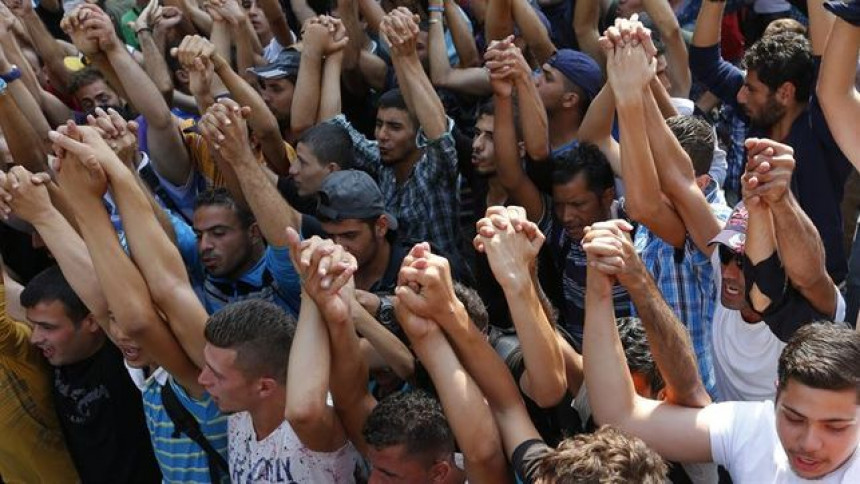
Watching the horrific images of Syrian refugees struggling towards safety and often perishing in the process, one cannot avoid being overtaken by emotions of outrage and anger. How is it possible that children are dying trying to reach the shores of Europe in 2015?
It was not supposed to be like this. Just two and a half decades ago, the fall of the Berlin Wall was meant to signify the emergence of a new Europe where old divisions and practices would not apply. An area of freedom, security and justice without internal borders. The EU aspired to be at the forefront of progressive politics, a global leader in the protection of human rights and a safe harbour for victims of abuse and intolerance.
How did we come from that to the images we see today? Part of the blame rests with current institutional arrangements for the screening of refugees, which are inadequate. The current regime operates at the level of member states, reflecting the needs of a different era and is clearly outdated. Presently, member states use different definitions for refugees and the said status is not transferable across states. Under such conditions, the process is rife with abuse and creates strong incentives for offloading the problem to other member states.
To be fair, the current crisis is of unprecedented proportions. Not since WWII have there been so many refugees across the world. According to the United Nations High Commissioner for Refugees there were almost 60 million refugees worldwide in 2014. That is, roughly the equivalent of the entire population of Italy being pushed out of home.
The institutional failure would have been bad enough by itself. A humanitarian crisis at the borders of Europe is certainly not a minor thing. However, this is not the only issue confronting us today. Unfortunately, what we have observed, especially in the course of the past year, is the spread of extremist views and practices among European citizens. Driven by a combination of xenophobia and demagogy such views have done their best to stigmatize refugees and hamper their journeys. Where in the past we strived to tear down walls, this summer we saw new ones being erected.
To make matters worse a minority of European party and government leaders have expressed views incompatible with modern Europe. My colleagues and I, at the Socialists and Democrats group in the European Parliament have called into question recent statements by the Prime Minister of Slovakia. We have urged our colleagues at the European People's Party to do likewise with Prime Minister Victor Orban of Hungary.
Hence, the challenge today is twofold: First, we need to address the problem of the rising xenophobia within our communities. Second, we need to protect refugees in line with EU law and values.
To do so, we must draw upon our common traditions and values: solidarity, respect for human dignity, equality, the rule of law and respect for human rights. If people have concerns regarding the arrival of refugees these must be addressed. Education is the best response to common fear and bigotry.
How should we proceed forward from here? There are quite a few things that need to be done. Some of them are immediate measures to manage the current crisis while others are meant to build up our institutional capacity for the future:







